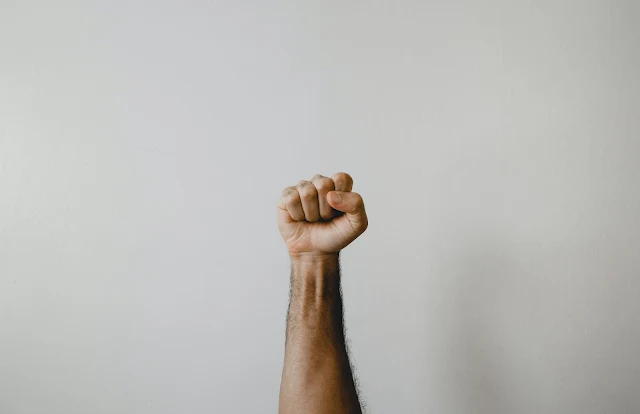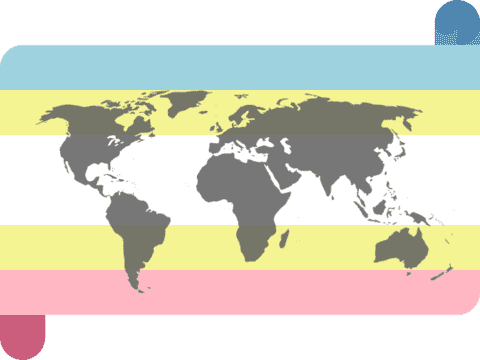
The concept of pride for minor-attracted people (MAPs) is one of the most controversial aspects of the minor-attracted person movement. From conspiracy theories about MAPs joining the LGBTQ community to claims that predators set aside a specific pride day for abusing children en masse, MAP pride has been the source of seemingly endless speculation by critics, bigots, and fearmongers alike. Although the truth is much more straightforward, it still carries complex revelations about the benefits MAP pride can have for MAP mental health and child protection.
Minorities and pride
Pride movements are a common phenomenon among marginalized groups, with the most well-known example being the LGBTQ community and gay/queer pride. Of course, pride isn't limited to sexualities, and similar campaigns exist across various religious, racial, and mental health groups. For example, Jewish, Black, and autistic communities all have (independent) concepts of pride, empowering them to celebrate their history and experiences.
While celebration and remembrance often play a major role, pride movements can also be a functional tool for activism. This is well-demonstrated by the early-2000s disability and mental illness pride movement known as "Mad Pride," which opposed the mistreatment and stigmatization of those with psychiatric disorders. Through decades of activism, Mad Pride advocates successfully pushed experts to reexamine how mental disorders are conceptualized and treated.
- increasing public visibility
- reaching potential supporters
- demonstrating political prowess
- promoting member wellbeing
- strengthening group unity
- legitimizing activism goals
The LGBTQ community is an excellent example of the power of effective pride movements, using their annual Pride Month celebration to build public awareness, break down stereotypes and misinformation, and provide their members with a safe space for self-expression. This has proven to be particularly important as the community increasingly grapples with attacks from legislators and extremists.
Minor attracted people
Pedophiles and other MAPs (not to be confused with abusers) also have a concept of pride, which they have adapted to suit their community's needs. Due to the privacy risks of offline activism, expressions of MAP pride mainly take the form of online posts. These posts may encourage self-acceptance or use one of many symbols representing the MAP movement. Since MAPs typically face extreme societal stigma due to misinformation, these posts serve as a much-needed respite (especially for young MAPs).
.png) |
| MAP Pride Flag, created by Stenna |
Of course, MAP pride isn't just limited to feel-good posts. MAP pride artwork is also common, thanks to a surprisingly extensive network of artists, designers, and other content creators in the MAP community. MAP bloggers also create long-form pride-related content, often sharing their stories to help others feel less alone. Other MAPs choose to accept the risk and engage in offline activism, spreading posters, stickers, and other media with information about and resources for MAPs.
Controversy and misinformation
Misinformation about many aspects of the MAP movement, including MAP pride, is rampant. Our more general article about MAPs and the MAP movement already addressed two common claims - that MAPs are "trying to gain acceptance in the LGBTQ community" or "normalize pedophilia" through pride and other forms of activism. As a refresher, there is no evidence of a coordinated push for MAPs to be included in the LGBTQ community, and "normalizing pedophilia" is a red herring phrase intended to mask the fact that destigmatizing minor attractions would likely prevent abuse.
However, a few claims warrant additional scrutiny when discussing MAP pride. In particular, some critics have alleged that MAP pride is "a front for abusing children" or that MAPs are "proud of wanting to rape kids." The latter is blatantly ridiculous, as there is a massive difference between finding someone attractive and wanting to rape them. That's not to mention the fact that many MAPs don't experience pride in their attractions specifically, arguing that it makes little sense to be proud of unchosen traits (though not all MAPs share this view). In the words of one MAP activist:
MAP Pride isn't about being LGBTQ or being proud of our attractions.
It's about surviving in a world that thinks it would be better off without us.
It's about celebrating our stories when society doesn't want to hear them.It's about believing that, against all odds, tomorrow will be a brighter day.
Others claim MAP pride will increase the number of people who experience minor attractions. This is an extension of the anti-LGBT trope that sexual and gender minorities "reproduce" by changing people's sexuality or gender. There is no evidence that these innate traits can be intentionally changed (which is why conversion therapy doesn't work). Instead, pride movements empower more people to explore and discuss their identity, creating the illusion that the number of people with those traits is growing.
Benefits of MAP pride
The idea that MAP pride is a cover for abuse is similarly straightforward to refute, given the evidence that MAP pride plays a role in abuse prevention. Experts have long recognized that MAP-centered stigma may increase rates of abuse and recommend that support for MAPs encourage self-acceptance to counteract this. Since the MAP pride movement also seeks to promote self-acceptance among MAPs, it likely has a similar effect.
Some of the beneficial effects of MAP pride are even more direct. As we discussed earlier, one of the appealing elements of pride movements is their ability to strengthen group unity and boost awareness. MAP pride has a similar impact on MAP activism, which child protection experts have stated can play an important role in preventing abuse.
Despite MAP pride's role in keeping kids safe and improving the wellbeing of MAPs, the controversy surrounding the topic shows no signs of letting up, with misleading claims continuing to pop up long after they've been debunked. Regardless, the MAP community has continued its longstanding efforts to make mental health support more widely available and affect societal change to reduce the stigma that harms MAPs, children, and sexual violence prevention experts alike.





Subscribe